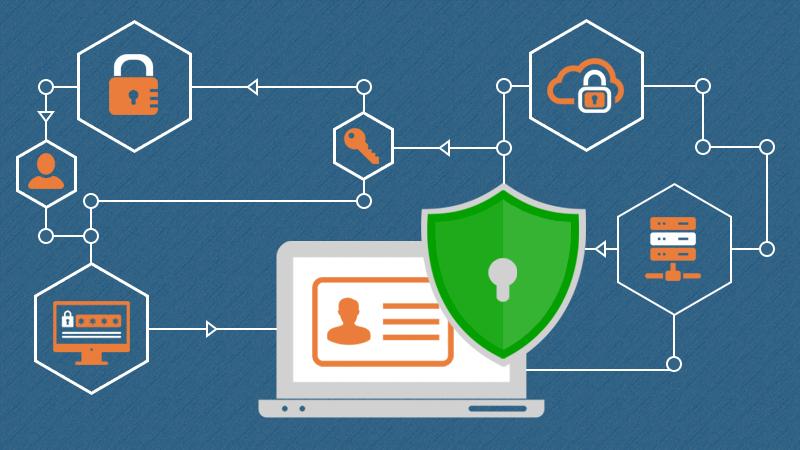Introduction
In the digital age, online security is paramount. Businesses and individuals alike need robust mechanisms to protect their data and ensure secure transactions. One of the leading names in online security solutions is Comodo. Comodo certificates offer various security features, from basic encryption to comprehensive validation services. This article provides an in-depth look at Comodo certificates, their types, benefits, and how they can enhance online security.
What Are Comodo Certificates?
Comodo certificates are digital certificates issued by Comodo CA (Certificate Authority) to secure websites and online communications. These certificates use encryption to protect data transmitted between the user’s browser and the website’s server, ensuring that sensitive information remains private and secure.
Types of Comodo Certificates
Domain Validation (DV) Certificates
DV certificates are the most basic type of SSL/TLS certificate offered by Comodo. They provide encryption and are quick to issue as they only require validation of domain ownership. This makes them ideal for small websites and blogs.
Organization Validation (OV) Certificates
OV certificates require more extensive validation, including verifying the organization’s details. This provides a higher level of trust and is suitable for businesses and organizations that need to assure their customers of their legitimacy.
Extended Validation (EV) Certificates
EV certificates offer the highest level of validation and trust. They involve a rigorous vetting process, and sites using EV certificates display a green address bar in the browser, indicating the highest level of security. This is especially important for e-commerce sites and financial institutions.
Wildcard Certificates
Wildcard certificates allow securing a primary domain and all its subdomains with a single certificate. This is cost-effective and simplifies management for websites with multiple subdomains.
Multi-Domain (SAN) Certificates
Multi-domain certificates, also known as Subject Alternative Name (SAN) certificates, can secure multiple domain names with a single certificate. This is ideal for organizations managing multiple websites.
Unified Communications Certificates (UCC)
UCCs are specifically designed for Microsoft Exchange and Office Communications environments. They secure multiple domains and host names within a single certificate, facilitating secure email and communication services.
Technical Specifications of Comodo Certificates
Comodo certificates utilize robust encryption standards, including up to 256-bit encryption and 2048-bit key length. They are compatible with 99.9% of browsers and mobile devices, ensuring broad accessibility and secure communications.
Applications for Comodo Certificates
E-commerce
In e-commerce, securing transactions is critical. Comodo certificates protect sensitive customer data such as credit card information, enhancing trust and reducing the risk of fraud.
Financial Services
Financial institutions handle vast amounts of sensitive data. Comodo certificates provide the necessary security to protect this data and ensure compliance with regulatory requirements.
Healthcare
Healthcare organizations use Comodo certificates to protect patient data and ensure compliance with health data protection regulations like HIPAA.
Education
Educational institutions use Comodo certificates to secure online portals and communication platforms, protecting student and faculty information.
Government
Government websites require high levels of security to protect citizens’ data. Comodo certificates offer the necessary encryption and validation.
Personal Websites and Blogs
Even personal websites and blogs benefit from the security and trust provided by Comodo certificates, protecting user interactions and enhancing credibility.
Benefits of Using Comodo Certificates
Enhanced Security
Comodo certificates provide robust encryption, protecting data from interception and tampering during transmission.
Increased Trust and Credibility
Websites with Comodo certificates display security indicators like padlocks and green address bars, increasing user trust and credibility.
Improved SEO Rankings
Google prioritizes secure websites in search rankings. Using Comodo certificates can enhance SEO performance by making the site more trustworthy and secure.
Compatibility and Integration
Comodo certificates are compatible with a wide range of browsers, mobile devices, and server types, ensuring seamless integration and broad accessibility.
Challenges and Limitations of Comodo Certificates
While Comodo certificates offer significant benefits, they are not without challenges. The validation process for higher-level certificates can be time-consuming. Additionally, managing multiple certificates can be complex for large organizations.
Latest Innovations in Comodo Certificates
Comodo continues to innovate, offering new products like AI-driven security solutions and advanced threat detection features, enhancing the overall security framework.
Future Prospects for Comodo Certificates
The future of Comodo certificates looks promising with ongoing advancements in encryption technologies and increasing demand for online security solutions. Innovations like quantum-resistant certificates are on the horizon.
Comparative Analysis: Comodo vs. Other Certificate Authorities
Comodo stands out for its comprehensive range of certificates and competitive pricing. However, comparing features, validation processes, and customer support with other leading CAs like DigiCert and Let’s Encrypt provides a holistic view.
User Guide to Implementing Comodo Certificates
Implementing Comodo certificates involves several steps:
- Choose the right certificate type.
- Generate a Certificate Signing Request (CSR).
- Complete the validation process.
- Install the certificate on the server.
- Verify the installation and ensure proper configuration.
Frequently Asked Questions (FAQs)
Q1: What is a Comodo SSL certificate?
A1: A Comodo SSL certificate is a digital certificate that uses encryption to secure data transmitted between a user’s browser and a website’s server.
Q2: How do I choose the right Comodo certificate?
A2: The choice depends on your needs. For basic security, a DV certificate is sufficient. For higher trust, consider OV or EV certificates. For multiple subdomains, a Wildcard certificate is ideal.
Q3: How long does it take to issue a Comodo certificate?
A3: DV certificates can be issued within minutes, while OV and EV certificates may take a few days due to the validation process.
Q4: Can I use a Comodo certificate on multiple servers?
A4: Yes, you can install Comodo certificates on multiple servers, but you may need to purchase additional licenses depending on the certificate type.
Q5: What is the cost of a Comodo certificate?
A5: The cost varies depending on the certificate type and validation level. DV certificates are generally the most affordable, while EV certificates are more expensive due to their extensive validation process.
Conclusion
Comodo certificates are a cornerstone of online security, providing robust encryption and validation to protect data and build trust. Whether for small personal websites or large enterprise environments, Comodo offers a wide range of certificates to meet diverse needs. By understanding and utilizing these certificates, organizations can significantly enhance their online security posture.







Be First to Comment